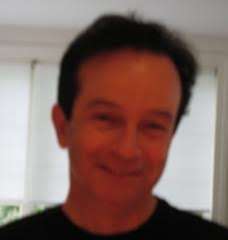Sarah Ruhl’s 2003 play Eurydice not only brings the title character out of the shadows of the myth to center-stage, but adds a crucial character – her deceased father – to its protean, poetical and at times whimsical meditation on love, loss and remembrance. Its thought provoking 80-minute run time packs a punch, ending with a Shakespearean wallop, yet leaves the audience with as many questions as answers.
Ruhl’s own adaptation for Matthew Aucoin's operatic treatment loses some of the text’s connective tissue (for example, the father’s poignant pantomime of walking his daughter down the aisle which echoes when he finally gives her away, leading her to Orpheus and a potential return to life). A tight and focused staging could best compensate, but that’s precisely what the Boston Lyric Opera’s musically and vocally compelling performance lacks. Decisions about costumes and presentation create distracting allusions and blunt the impact of one key character in particular. The Barbie and Ken vibe of the opening scene, for example, while cute, is distracting and turns Orpheus into a bleached blond surfer dude who demonstrates little to recommend him. But the major miscalculation is the decision to have Hades camp it up à la Ru Paul and costume him accordingly. It provides a vivid comic and vocal turn for David Portillo but throws the narrative focus off-balance and robs the character of Hades of any sense of menace or danger. “The Nasty and Interesting Man” (the play’s moniker) of his first appearance is neither and “The Lord of the Underworld” seems more petulant than powerful. Though the ending, with its echoes of Romeo and Juliet, retains its impact, it seems tacked on instead of the culmination of any dramatic build-up.
None of this should detract from either the validity of the chamber version created for this production or the high quality of the singing. Aucoin has reduced the orchestra to just 17 players and eliminated the chorus entirely. The lively repeated figures in minimalist style which drive most of the action, the grand flowing melodies and the unusual rhythmic and harmonic shifts gained in clarity and crispness from the reduction, drawing the listener in. The singers had no worries about being covered, which seemed to allow for a more natural freedom of movement.
Sydney Mancasola met the vocal challenges of the title role, with its high Ds, with verve and aplomb. The crystalline quality in her voice contrasted to great effect with the warm, burnished tones of Mark S Doss as her father. Their exchanges were a vocal highlight. Elliot Madore’s robust baritone gave Orpheus the substance and character his costuming and hair belied. To represent his demigod-like nature (in some versions of the myth Apollo is his father), Aucoin has a countertenor provide a high pitched halo, repeating or seconding some of Orpheus’ music. Nicholas Kelliher, both offstage and on, synched perfectly with Madore in these otherworldly passages. The Three Stones are the Ping, Pang and Pong of the Underworld, lightening the mood and providing caustic commentary. Maggie Finneran, Neal Ferreira and last minute Big Stone substitute, Vera Savage, were a droll trio, definitely gathering no moss, despite their cumbersome costumes.
Matthew Aucoin conducted his score with drive and assurance. Its flow of rapid fire invention and allusion could feel overwhelming in the original version as the brain tried to keep up with what the ear was hearing (was that an echo of the Nibelheim anvils in Rheingold I just heard?) Not so with this reduction, where such passages registered more clearly. Eurydice is by nature an intimate drama. Though it worked well as a “grand” opera on a big stage with equally big forces, this version can pack just as big a punch in a smaller venue.




